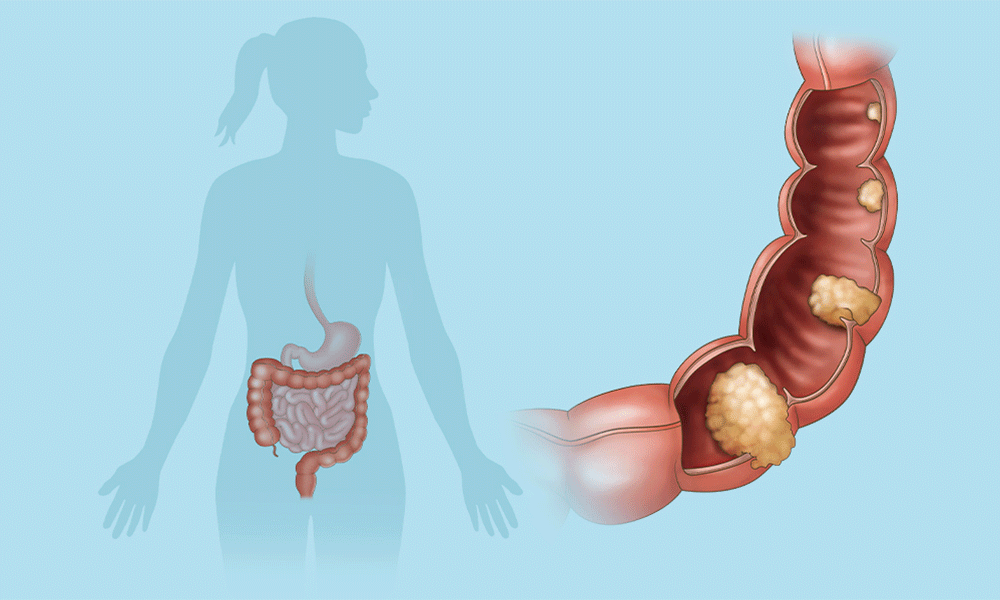Bowel Cancer
Bowel cancer, also known as colorectal cancer, is a type of cancer that begins in the colon or rectum. Screening tests such as colonoscopies can detect precancerous growths or early-stage cancer.
Bowel cancer affects both men and women, but there are some gender-specific factors that can increase a woman's risk. For example, women with a history of ovarian, uterine, or breast cancer may have a higher risk of developing bowel cancer. Additionally, hormonal factors may play a role in bowel cancer development in women.
Bowel cancer is the second most common cancer among women, and early detection is crucial for effective treatment. Women who are aware of the risk factors, symptoms, and screening options for bowel cancer are better equipped to make informed decisions about their health and take preventative measures.
As bowel cancer can develop without any noticeable symptoms, it's important for women to be proactive about their health by getting regular screenings and maintaining a healthy lifestyle to reduce their risk of developing this disease.
Discover more about Bowel Cancer with our new patient education chart, illustrated beautifully by our medical illustrators – ideal for display purposes in a variety of clinical settings, such as in GP clinics, hospitals, or health centres, and can also be used in educational institutions.
Ovarian Cancer
Ovarian cancer originates in the ovaries, which are two small organs located in the pelvis. It can develop in different types of cells within the ovaries, such as the epithelial cells that cover the surface of the ovaries or the germ cells that produce eggs. It is often called the "silent killer" because symptoms may be vague or absent in the early stages, and it may not be detected until it has spread to other parts of the body.
Risk factors for ovarian cancer include family history, age, and certain genetic mutations. Treatment may involve surgery, chemotherapy, and radiation therapy. Early detection and treatment can significantly improve outcomes for ovarian cancer patients.
Ovarian Cancer
Know the Symptoms
Understanding about ovarian cancer is so important for women because it is a potentially life-threatening condition that can be difficult to detect in its early stages.
Awareness of the risk factors, signs and symptoms, and available treatment options can help women make informed choices about their health and seek medical attention promptly if needed.
Breast Cancer
Breast cancer is the most
common cancer in the UK.
25% of breast cancer cases are
preventable, and more than 76% of
people survive for ten years or more!
Breast cancer starts in the cells of the breast tissue. There are two main types of breast cancer: ductal carcinoma and lobular carcinoma. Ductal carcinoma originates in the milk ducts, which carry milk from the lobules to the nipple. Lobular carcinoma originates in the lobules, which are the milk-producing glands.
Breast cancer can also spread to other parts of the body, such as the lymph nodes, bones, or liver. Understanding the different types and stages of breast cancer can help in the diagnosis and treatment of the disease.
It is essential to be aware of the symptoms of breast cancer because early detection can have a more positive outcome. Women should regularly perform self-exams and report any changes or concerns to their healthcare provider.
Breast changes to look out for
Our breast self-examination video provides step-by-step guidance on how to properly examine your breasts for any changes or abnormalities. It's an educational resource that can help raise awareness about breast health and the importance of regular self-exams for early detection of breast cancer.
Cervical Cancer
Cervical cancer is a type of cancer that affects the cervix, which is the lower part of the uterus that connects to the vagina. It is most commonly caused by the human papillomavirus (HPV), a common sexually transmitted infection.
Cervical cancer can be prevented through regular cervical cancer screening tests, such as smear test and HPV tests, and by receiving the HPV vaccine. Symptoms of cervical cancer include abnormal vaginal bleeding or discharge, pelvic pain, and pain during sex.
Treatment may involve surgery, chemotherapy, and/or radiation therapy. Early detection and treatment can provide better outcomes and increase the chances of a full recovery.
What is a smear test?
A smear test, also known as a Pap smear, is a screening test for cervical cancer. During the test, a healthcare provider collects cells from the cervix and sends them to a laboratory for analysis. The test can detect abnormal cells in the cervix that may become cancerous over time, allowing for early detection and treatment.
A smear test is important because it can detect abnormal cells in the cervix before they develop into cancer. Catching the cancer in the early stages will give the best possible chance of a better outcome.
Download our new 'Don't Fear Your Smear' PDF pack to help you prepare for your smear test!
What to do if you think you might have cancer
If you think you may have cancer, seek medical attention as soon as possible. Schedule an appointment with your healthcare provider to discuss your symptoms and concerns. Your provider may recommend diagnostic tests such as imaging scans or biopsies to confirm or rule out a cancer diagnosis.
Ensure you stay informed and ask questions about your diagnosis and treatment options. Seek support from loved ones or a support group to help cope with the emotional and physical challenges of a cancer diagnosis.
Remember the earlier it's detected and treated, the better the chances of a positive outcome.
What to do if you have cancer
If you have been diagnosed with cancer, work closely with your healthcare team to develop a treatment plan that is right for you. Treatment options may include surgery, chemotherapy, radiation therapy, targeted therapy, or a combination of these.
It is important to manage any side effects of treatment and maintain good communication with your healthcare team. Seeking support from family, friends,
or a support group can also be helpful. It is important to continue to prioritize
your overall health by eating a balanced diet, exercising regularly, and getting enough rest.
Remember that cancer treatment can be a difficult journey, but with the right support and treatment, it is possible to overcome it.



















